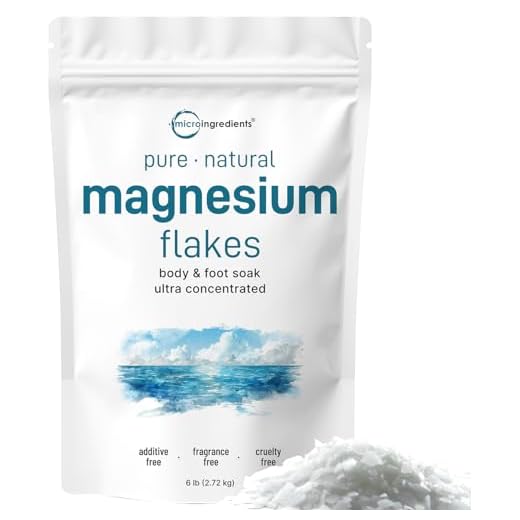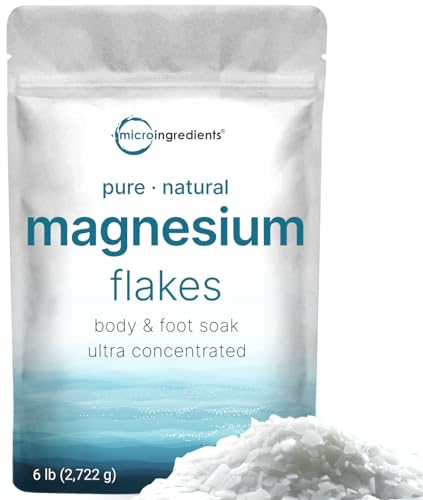In this step-by-step guide, we understand the importance of being able to identify natural ingredients in skincare products. By following these steps, you can confidently make informed choices for your skincare routine. Let’s embark on this journey of self-care and empowerment together.
Top-Selling Natural Ingredient Products



Understand the Terminology
- Study the meanings of terms such as ‘organic,’ ‘natural,’ ‘clean,’ and ‘green’ to comprehend labels effectively. Refer to reputable sources or guides to gain accurate definitions.
- Ensure that natural ingredients are placed higher in the list of ingredients when checking labels. Scan the ingredient list carefully and prioritize products that have a higher concentration of natural components.
Research Common Natural Ingredients
- Identify Aloe Vera: Look for products that contain aloe vera to soothe and hydrate the skin. Familiarize yourself with its scientific name, Aloe barbadensis, on labels. Research its benefits and understand how it can enhance your skincare routine.
- Recognize Coconut Oil: Learn to spot coconut oil in ingredient lists. Understand its moisturizing properties and how it can benefit your hair and skin. Be aware of its aliases like Cocos nucifera oil when reading labels.
- Understand Shea Butter: Educate yourself on shea butter and its nourishing effects. Look for terms like Butyrospermum parkii butter on product labels. Know how shea butter can help with dry skin, eczema, and more.
- Learn about Essential Oils: Explore different types of essential oils such as lavender, tea tree, or peppermint. Recognize their names like Lavandula angustifolia oil or Mentha piperita oil on packaging. Understand their aromatherapy benefits and skincare uses.
Check for Certifications
Check for Certifications
- Look for certifications from organizations like USDA Organic, Ecocert, or COSMOS.
- Verify the presence of these certifications on product labels or packaging.
- Ensure that the certifications indicate the use of natural ingredients in the products.
- Research the credibility of the certifying organizations to guarantee authenticity.
- Compare certification logos with known ones from the organizations’ websites.
- Seek detailed information about the certification process from the respective organizations if needed.
- Trust products bearing recognized certification logos for authentic natural ingredients.
Avoid Artificial Additives
- Check Ingredient List: Scan the product’s ingredient list for synthetic fragrances, parabens, sulfates, and other harmful chemicals. Look out for terms like “fragrance” or “parfum” which can hide a multitude of synthetic compounds. Opt for products that clearly list natural ingredients and avoid those with a long list of unrecognizable chemicals.
- Research Ingredients: Take the time to research any unfamiliar ingredients you come across. Look for information on their safety and potential side effects. There are various online resources and apps that can help you understand what each ingredient does and whether it is derived from natural sources or if it is a harmful chemical.
- Choose Trusted Brands: Select products from brands known for their commitment to using natural and safe ingredients. Research and read reviews to ensure that the brand you choose is transparent about their formulations. Trustworthy brands often provide detailed information about their sourcing and production methods, making it easier for you to make an informed decision.
Read the Ingredient List
- Examine Natural Components: Look for scientific names of natural ingredients in the list, as they are typically longer and more complex compared to synthetic compounds. For example, “Tocopherol” is a natural form of Vitamin E, while “Retinyl Palmitate” is a synthetic version of Vitamin A.
- Identify Synthetic Compounds: Synthetic ingredients often have shorter and simpler names in the ingredient list. For instance, “Sodium Lauryl Sulfate” is a common synthetic detergent, while “Butyrospermum Parkii Butter” is the scientific name for Shea Butter.
- Research Unfamiliar Names: If you come across an ingredient you’re unsure about, take a moment to research it. Natural components like “Ascorbic Acid” are Vitamin C, while synthetic additives like “Butylated Hydroxyanisole” may raise concerns.
- Prioritize Natural Ingredients: By understanding the scientific names of natural components, you can easily differentiate them from synthetic compounds and make more informed choices when selecting products. Remember, the ingredient list is your tool to decipher what you’re putting on your skin or body.
Research Brands and Ingredients
- Identify brands that are reputed for using natural ingredients in their products. Look for brands that emphasize natural or organic formulations in their marketing.
- Obtain the ingredient list for products from these brands. This information is typically available on their official websites or product packaging.
- Cross-reference these ingredient lists with reliable sources such as scientific studies, databases like the Environmental Working Group (EWG), or reputable skincare forums.
- Verify the claims made by the brands regarding the natural ingredients used in their products. Ensure that the ingredients are indeed natural and beneficial for your skin.
- Make informed decisions about the brands you choose based on the accuracy of their ingredient claims. Trust brands that align with your preferences for natural skincare products.
Consult Professionals
Seek Advice from Dermatologists or Skincare Experts
When in doubt about the authenticity of natural ingredients in skincare products, consult with dermatologists or skincare experts. These professionals can provide valuable insights and guidance on identifying genuine natural ingredients. Schedule an appointment or reach out to them for advice on deciphering product labels, understanding ingredient lists, and differentiating between authentic and potentially harmful components. Trust their expertise to help you make informed decisions about the skincare products you use.
Key Takeaways
In conclusion, armed with the knowledge gained from the steps outlined in this blog post, you can now confidently discern natural ingredients in skincare products and hence, make well-informed choices in selecting the right products for your skin.
Expert Ingredient Insights
Simple Tips for Harnessing the Power of Natural Ingredients
- Start by researching various natural ingredients that are suitable for your skin type or hair type
- Purchase small quantities of these natural ingredients from reputable sources to ensure quality
- Experiment with creating simple DIY recipes using the natural ingredients, following basic guidelines or recipes found online
- Conduct patch tests on a small area of skin to check for any adverse reactions before using the natural ingredients more widely
- Gradually incorporate natural ingredients into your daily skincare or haircare routine to observe their effects and determine what works best for you
Learn more about our natural ingredients
How can we identify genuine natural ingredients in products?
One way to identify genuine natural ingredients in products is to look for certifications from reputable organizations, such as the USDA Organic seal or the COSMOS certification for cosmetics. Reading the ingredient list is also important – genuine natural ingredients should be listed near the top and should be recognizable as plant-based or derived from natural sources. Lastly, researching the brand’s reputation and commitment to transparency and sustainability can help verify the authenticity of the ingredients used in their products.
Are natural ingredients always safe for use on the skin?
Not all natural ingredients are safe for use on the skin. While many natural ingredients can be beneficial and safe, some may cause irritation, allergic reactions, or other adverse effects. It’s important to research and understand the potential risks associated with specific natural ingredients before using them on your skin. Consulting with a dermatologist or skincare professional can also help determine what ingredients are safe and suitable for your skin type.
What are some natural ingredients that are known for their anti-aging properties?
Some natural ingredients known for their anti-aging properties are:
- Vitamin C: Helps brighten the skin, promote collagen production, and reduce the appearance of fine lines and wrinkles.
- Retinol (Vitamin A): Stimulates collagen production, improves skin texture, and reduces the signs of aging.
- Hyaluronic Acid: Hydrates and plumps the skin, reducing the appearance of fine lines and wrinkles.
- Green Tea Extract: Contains antioxidants that help protect the skin from damage and reduce signs of aging.
- Niacinamide (Vitamin B3): Improves skin elasticity, reduces hyperpigmentation, and helps repair damaged skin barrier.
What are natural ingredients in skincare products?
Natural ingredients commonly found in skincare products include aloe vera, coconut oil, tea tree oil, argan oil, shea butter, green tea extract, and rosehip oil. These ingredients are known for their moisturizing, soothing, antioxidant, and anti-inflammatory properties, making them popular choices for formulating skincare products.
What are the benefits of using products with plant-based natural ingredients?
Products with plant-based natural ingredients offer several benefits. They are generally gentler on the skin, as they are less likely to cause irritation or allergic reactions compared to products with synthetic chemicals. Plant-based ingredients often contain antioxidants, vitamins, and minerals that can nourish and protect the skin. Additionally, using products with natural ingredients can be more environmentally friendly as they are biodegradable and sustainable compared to products made with harsh chemicals.
Are natural ingredients more sustainable than synthetic ones?
The sustainability of natural versus synthetic ingredients can vary depending on factors such as resource availability, production methods, and environmental impact. In some cases, natural ingredients sourced sustainably may have a lower environmental footprint compared to synthetic ingredients that require energy-intensive manufacturing processes. However, it is not accurate to make a blanket statement that one is definitively more sustainable than the other. It is important to consider the specific circumstances and context of each ingredient to determine its sustainability.
What are some common natural ingredients used in hair care products?
Some common natural ingredients used in hair care products include coconut oil, argan oil, shea butter, aloe vera, avocado oil, and jojoba oil. These ingredients are known for their moisturizing, nourishing, and strengthening properties for hair.
Are there any natural ingredients that are specifically beneficial for sensitive skin?
Yes, there are several natural ingredients that can be beneficial for sensitive skin. Some common ones include aloe vera, chamomile, oatmeal, calendula, and green tea. These ingredients are known for their soothing and calming properties, which can help reduce inflammation and irritation in sensitive skin. It is important to patch test any new ingredient on a small area of skin to check for any allergic reactions before using it more widely.
How can we incorporate more natural ingredients into our daily beauty routine?
One way to incorporate more natural ingredients into your daily beauty routine is to look for skincare and haircare products that are made with natural ingredients such as plant extracts, essential oils, and natural butters. You can also make your own DIY beauty products using ingredients like coconut oil, honey, aloe vera, and avocado. Additionally, eating a healthy diet rich in fruits, vegetables, and whole foods can also help improve your skin, hair, and overall appearance from the inside out.
How can natural ingredients benefit our skin?
Natural ingredients can benefit our skin in various ways. Many natural ingredients contain antioxidants, vitamins, and minerals that can help nourish and protect the skin. For example, ingredients like aloe vera, coconut oil, and shea butter can provide hydration and soothe the skin. Additionally, natural ingredients are often less likely to cause irritation or allergic reactions compared to synthetic ingredients, making them a gentler option for sensitive skin. Overall, incorporating natural ingredients into skincare products can promote healthier and more radiant skin.


Leave a Reply